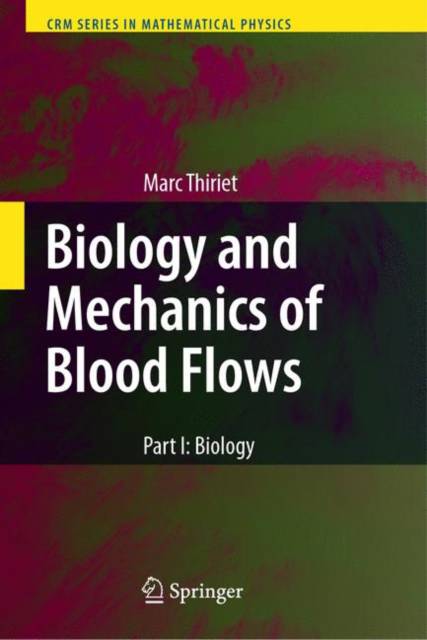
- Afhalen na 1 uur in een winkel met voorraad
- Gratis thuislevering in België vanaf € 30
- Ruim aanbod met 7 miljoen producten
- Afhalen na 1 uur in een winkel met voorraad
- Gratis thuislevering in België vanaf € 30
- Ruim aanbod met 7 miljoen producten
Omschrijving
Biology and Mechanics of Blood Flows presents the basic knowledge and state-of-the-art techniques necessary to carry out investigations of the cardiovascular system using modeling and simulation. Part I of this two-volume sequence, Biology, addresses the nanoscopic and microscopic scales. The nanoscale corresponds to the scale of biochemical reaction cascades involved in cell adaptation to mechanical stresses among other stimuli. The microscale is the scale of stress-induced tissue remodeling associated with acute or chronic loadings. The cardiovascular system, like any physiological system, has a complicated three-dimensional structure and composition. Its time dependent behavior is regulated, and this complex system has many components. In this authoritative work, the author provides a survey of relevant cell components and processes, with detailed coverage of the electrical and mechanical behaviors of vascular cells, tissues, and organs. Because the behaviors of vascular cells and tissues are tightly coupled to the mechanics of flowing blood, the major features of blood flows and the Navier-Stokes equations of mass and momentum conservation are introduced at the conclusion of this volume. This book will appeal to any biologist, chemist, physicist, or applied mathematician with an interest in the functioning of the cardiovascular system.
Specificaties
Betrokkenen
- Auteur(s):
- Uitgeverij:
Inhoud
- Aantal bladzijden:
- 658
- Taal:
- Engels
- Reeks:
Eigenschappen
- Productcode (EAN):
- 9780387748467
- Verschijningsdatum:
- 6/12/2007
- Uitvoering:
- Hardcover
- Formaat:
- Genaaid
- Afmetingen:
- 156 mm x 234 mm
- Gewicht:
- 1111 g

Alleen bij Standaard Boekhandel
Beoordelingen
We publiceren alleen reviews die voldoen aan de voorwaarden voor reviews. Bekijk onze voorwaarden voor reviews.











